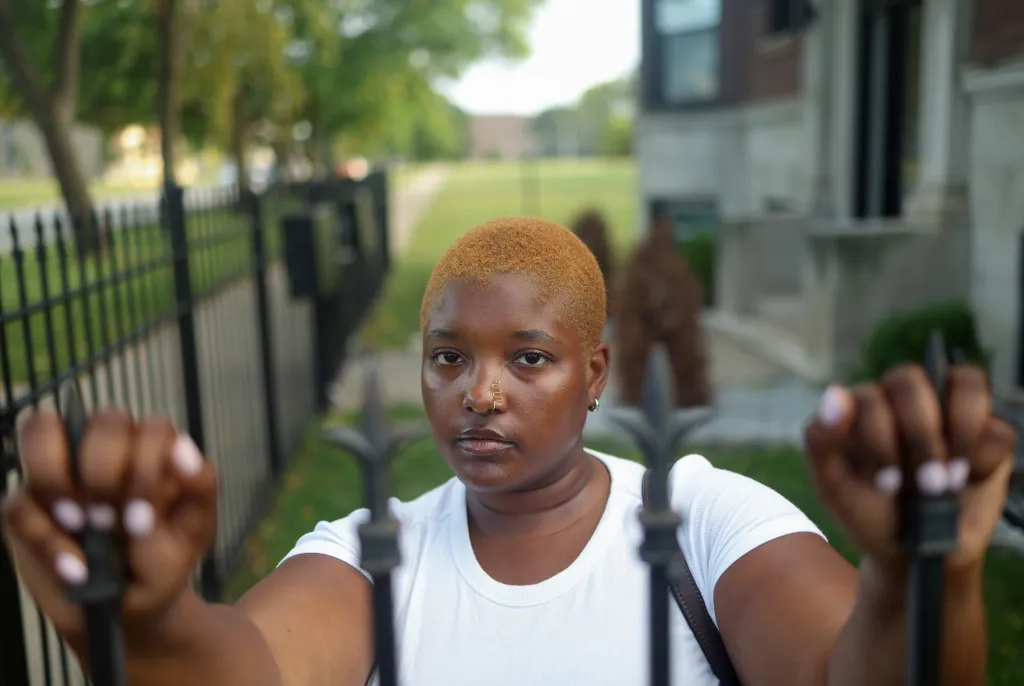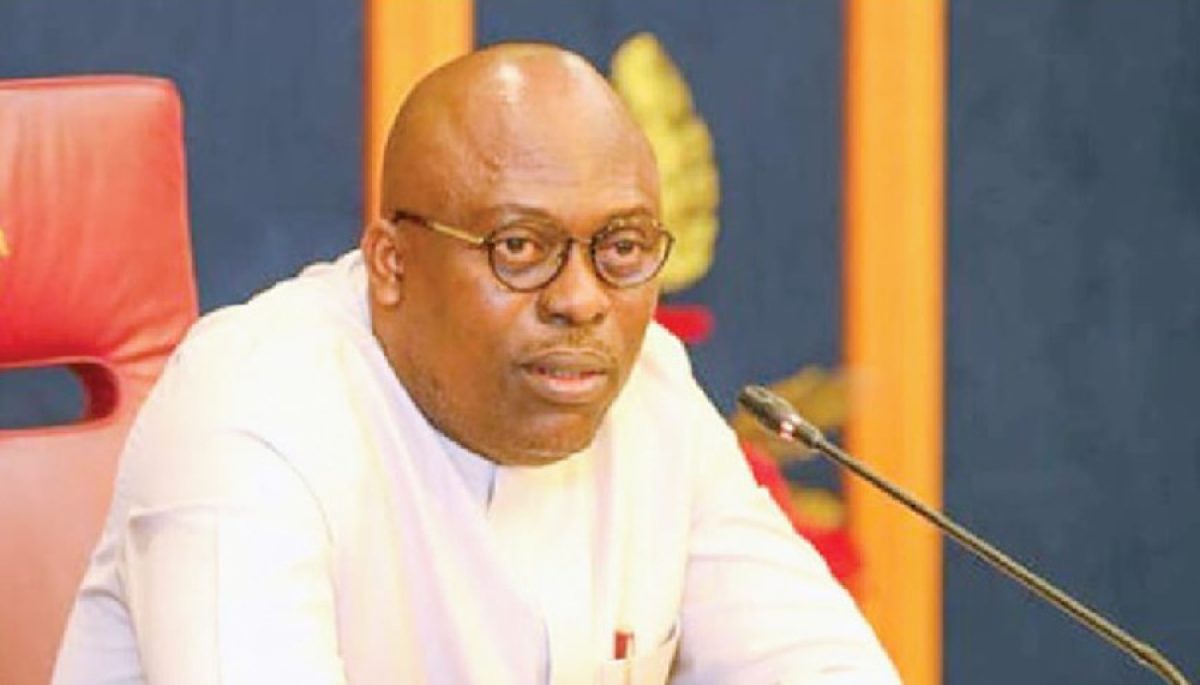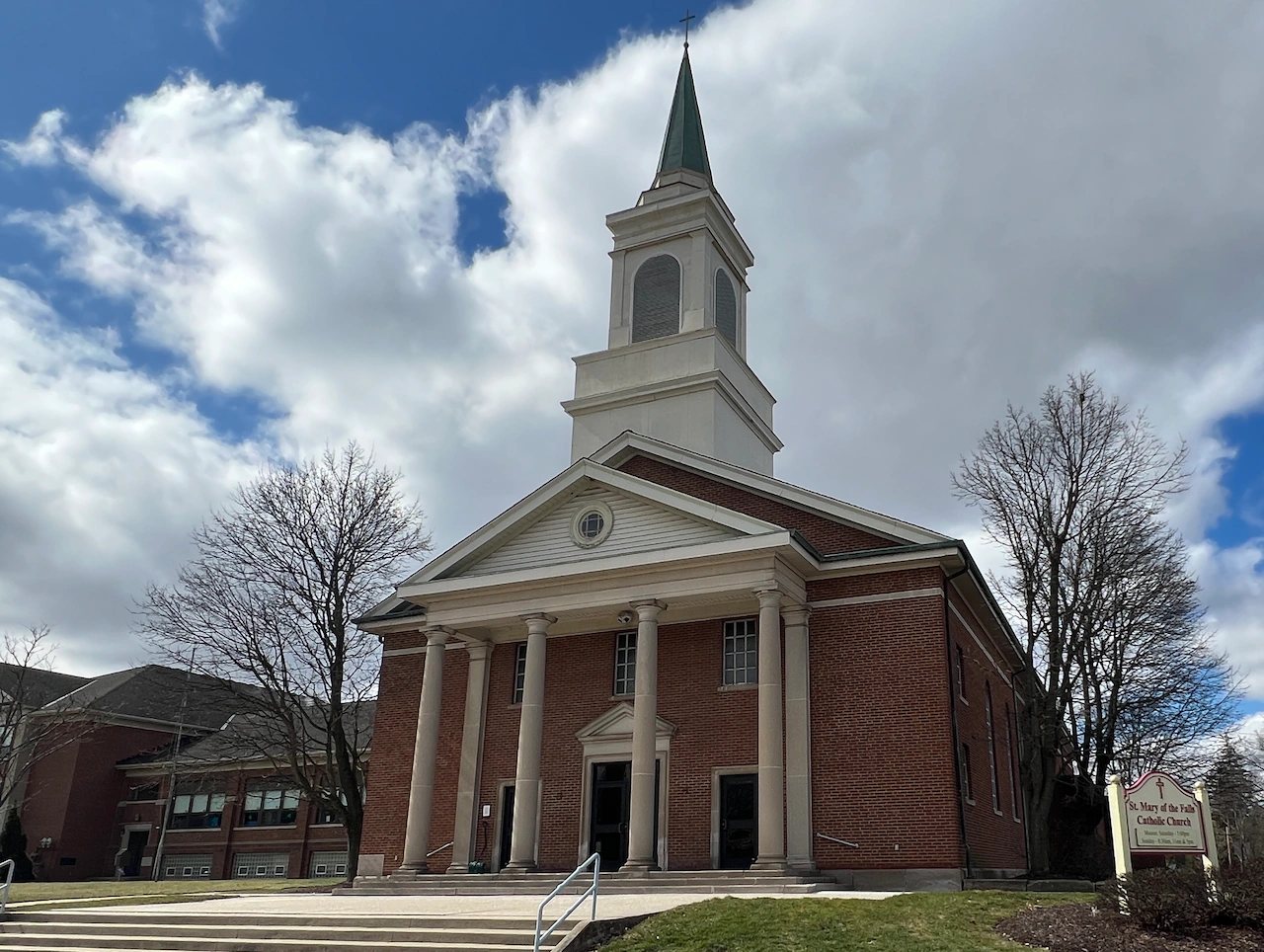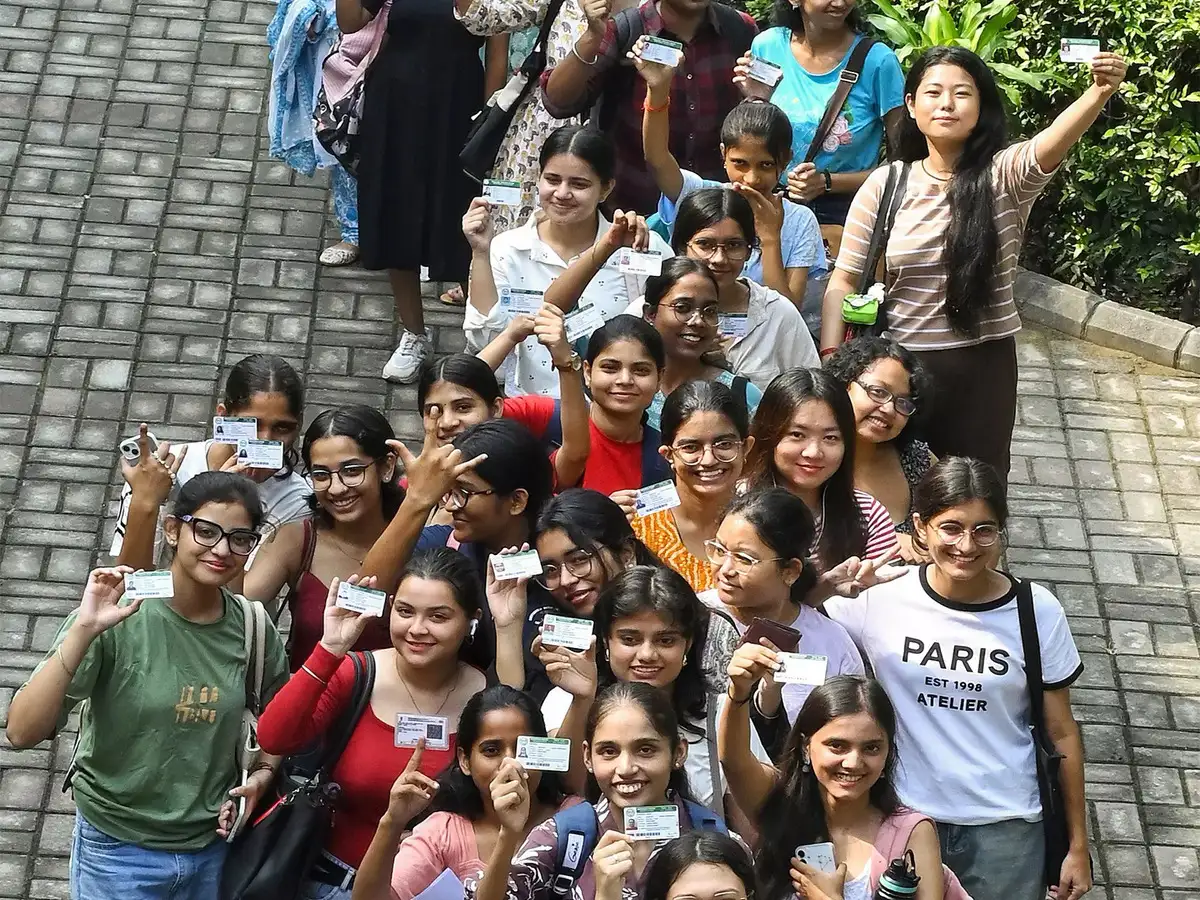
Jadah Parker is on edge these days.
The 26-year-old is cautious while commuting from her Washington Park apartment to work in the Loop. She keeps a lock on the driving wheel of her car, and is usually indoors by the time the sun sets.
But with talk that President Donald Trump might deploy the National Guard to Chicago, Parker, who is Black, has been reminding herself to stay on her best behavior.
“It just makes me completely nervous,” she said.
Since sending the National Guard to Los Angeles and Washington, D.C., earlier this year, Trump has repeatedly threatened to deploy troops to Chicago under the guise of combating crime — despite the fact that, according to city and county figures, Chicago was poised to close the first half of the year with its steepest statistical drop in crime in recent memory.
But as Trump toys with the idea of militarizing some of the country’s most Democratic cities — in turn, testing the limits of presidential power — the idea of increased law enforcement patrolling the city’s neighborhoods weighs heavily on Chicago’s Black communities, whose relationship with law enforcement is rooted in historical tensions and present-day fear.
For residents of primarily Black neighborhoods on the South and West sides, terms like “Operation Midway Blitz,” “Death Trap,” “Chipocalypse Now” — all phrases the Trump administration has used when talking about Chicago amid this month’s immigration crackdown — can be detrimental, say mental health professionals, community leaders and everyday residents.
It’s frightening, said Parker, a lifelong Chicagoan. With federal immigration agents already crawling across the city, detaining people going to work, dropping their kids off at school or going to court, it’s nerve-wracking, she said.
“I’m a Black woman … and even if I’m not necessarily the target, I fear that I might see that happening and then I don’t know what to do,” she said. “Am I cowering out (by) not doing anything? Do I film? Am I going to be retaliated against?”
The National Guard in the city is not new. A review of the Tribune’s archives found 18 events in which the governor activated the National Guard within Chicago. Two of them — both during the 19th century — involved a sitting U.S. president who acted in coordination with the governor.
But if it happens under Trump, it’s over the objections of a sitting governor who has already threatened a legal battle. Gov. JB Pritzker has also mocked Trump’s wavering threats, saying recently that “you can’t take anything that he says seriously from one day to the next.”
“He’s attacking verbally, sometimes he attacks, sending his agents in, sometimes he forgets. I think he might be suffering from some dementia. The next day, he’ll wake up on the other side of the bed and stop talking about Chicago,” Pritzker, an ardent critic of Trump and a potential 2028 White House aspirant, said of the president.
Still, the “will he or won’t he?” discussion becomes the “greatest frustration,” said Karen Freeman-Wilson, president and CEO of the Chicago Urban League. Anyone could become Trump’s next target, she said.
Creating chaos doesn’t respect the law or the concept of due process, she said.
“It is simply disrespectful to the people who live in a democracy. And it’s intentionally so, it’s not an accident,” she said.
The Rev. Marshall Hatch Sr. calls it “traumatizing.”
The senior pastor of the New Mount Pilgrim Missionary Baptist Church of West Garfield was living in the former Jane Addams Homes on the city’s Near West Side when the National Guard was deployed to Chicago in 1968. The Rev. Martin Luther King Jr. had just been assassinated in Memphis, Tennessee. Hatch was 10 years old at the time.
King’s murder had sparked riots across the country. In Chicago, on the first night of rioting, nine people, all Black, were killed. Two days later, with the approval of Mayor Richard J. Daley, thousands of troops descended on the city’s most troubled areas.
“(I remember) seeing soldiers going up and down the street and chaos across the West Side,” he said, “and as a resident of public housing and maybe feeling somewhat unprotected.”
It “felt like under occupation as a little kid,” said Hatch. Especially when Daley gave his infamous police order to “shoot to kill” against arsonists, he said.
Now, with the present threat, it almost feels like, hour by hour, there’s this “ominous, sort of bracing” for what’s to come, Hatch said.
Last month, Trump deployed 2,300 National Guard members to the District of Columbia in the name of reducing crime. Wearing fatigues and carrying M17 pistols, the Guard units gathered in groups near tourist hotspots like the National Mall, the Lincoln Memorial and Washington Monument. Some were tasked to pick up trash and spread mulch, others forcibly removed people sleeping in federal parks.
The images were troubling for Parker’s 27-year-old sister, Daynah, who attended college in the district and now lives in Woodlawn. The back-and-forth has her feeling restless.
“Was this all just to get us like this and you’re not actually coming?” she said. “But then you saw what happened in D.C. and you think, ‘Maybe they will come.’”
Jaylen Hughes, 18, was born and raised in Chicago, and lives in Englewood. The Noble Academy high school student said Trump has it all wrong about the city.
“(Trump) is making it feel like it’s a warzone but it’s really not,” Hughes said on a recent afternoon, as he stood on a sidewalk in River North. “These are people’s homes. You can’t just come in and do what you want to do just because you have power. That don’t make sense.”
The fear folks have now is rational and appropriate, considering the National Guard’s history, according to Elizabeth Todd-Breland, a history professor at the University of Illinois Chicago.
She said that historically, people viewed the National Guard as defenders of civil rights — particularly in the South when troops were called in to force desegregation in education.
However, that perspective changed in the 1960s, she said, when the troops were used to suppress demonstrations and target Black protesters who rose up against deep, systemic injustices, she said.
“It’s Black people who have borne the brunt of over-policing in our neighborhoods,” she said. “I think that there are many Black folks who have a very strong aversion to that.”
Marshall Gibson owns a building in Englewood, a community that has been hurt by decades-long injustices such as disinvestment, redlining and land sale contracts. But it’s also a place where residents are seeking to reclaim the narrative of their Black community.
Over the years, many of the mostly Venezuelan migrants who arrived in Chicago during Texas Gov. Greg Abbott’s campaign to bus asylum-seekers to sanctuary cities resettled on the South and West sides. Neighborhoods like Englewood were more affordable but also untethered from a support system with familial and cultural ties. Unlike waves of immigrants before them, there was no established community for them to settle in.
While it sometimes seemed like an uneasy truce within the Black neighborhoods the migrants moved into, landlords like Gibson made space for those who arrived.
“I’m trying to stay vigilant and keep my eyes open for what’s to come,” Gibson said. “The community is divided. The talk of the National Guard coming just keeps putting people on edge.”
Earlier this month, Howard Simmons was taking pictures at the opening of Greater Grand Crossing’s Land School arts incubator. He recalled the National Guard deployed in Chicago after the West Side was set ablaze after King’s assassination.
“I have some pictures of the National Guard with their rifles … a photograph with the burned-out buildings in the background,” the retired photojournalist said. “That was a different situation — they were there to quell the riots, not having the National Guard sitting as an intimidation tactic.”
On the same day Trump posted on his website Truth Social, “Chicago about to find out why it’s called the Department of WAR”, community leaders, including activists and clergy, gathered at Rainbow PUSH headquarters to discuss nonviolent conflict resolutions.
“Declaring war on citizens is not an appropriate response,” the Rev. Janette Wilson, Operation PUSH adviser to the Rev. Jesse Jackson, said Sept. 6. “We have to love our neighbor as ourselves, and we have to resist any forms of abuse of violence wherever it is, because violence anywhere is a threat to peace everywhere.”
The Rev. Otis Moss III, who leads Trinity United Church of Christ, the former church of President Barack Obama, said Trump’s National Guard threats were a diversion from more pressing problems.
“This is not Hurricane Katrina. This is not a civil war in Sudan. This is not a famine in northern Ethiopia,” he said. “This is Chicago. We did not invite you.”
Since classes started at It Takes A Village Leadership Academy in Bronzeville a few weeks ago, the National Guard has seeped into discussions at the private South Side K-8 institution that specializes in social justice curriculum.
Staff have tried to “ease some of the fears that come about with the unknown,” said teacher Larry Johnson, from the school’s Cottage Grove Avenue campus, which formerly housed Hales Franciscan, a historically Black high school.
In class, he said, they’ve discussed the Little Rock Nine, and how in 1957 the National Guard was first used to block, but then ultimately help the group of Black teenagers integrate an all-white high school in Arkansas. They’ve also discussed when the troops have been called in more recent times, such as deployments to natural disaster areas.
For the students, the shifting historical views of the National Guard — sometimes friend, sometimes foe — can be confusing.
“Even though (they’d) be here to help, we don’t think our community is going to allow them to help us,” said 13-year-old Kyleigh Redmond. “I’m scared about how people in my community will react to that.”
Students at the school said they have heard about the Guard in class and in their own circles, from news reports to speaking with loved ones. They said they hoped for the best, and feared for the worst.
Kayden Mayo, 12, is worried about whether his community could trust the troops.
“I think it’s spreading fear and terror into citizens’ hearts,” he said, “and mainly just causing more chaos.”
Dean of Students Marquinn McDonald, who serves as a council member for the Wentworth Area Chicago police district, said he knows “Folks (that) are very scared right now.”
For the past eight years, McDonald has run a grassroots community safety organization known as Watchguard Chicago devoted to violence prevention. Through on the ground work, McDonald has seen “great change within the community,” he said.
But he worries, he said, that if the National Guard comes, younger generations could see history repeat itself.
“I know that our ancestors’ goal was for us, even my generation … not to have experienced what they endured,” McDonald said. “Unfortunately, even though people say we’re in 2025, I need people to remember that civil rights was just yesterday.”



